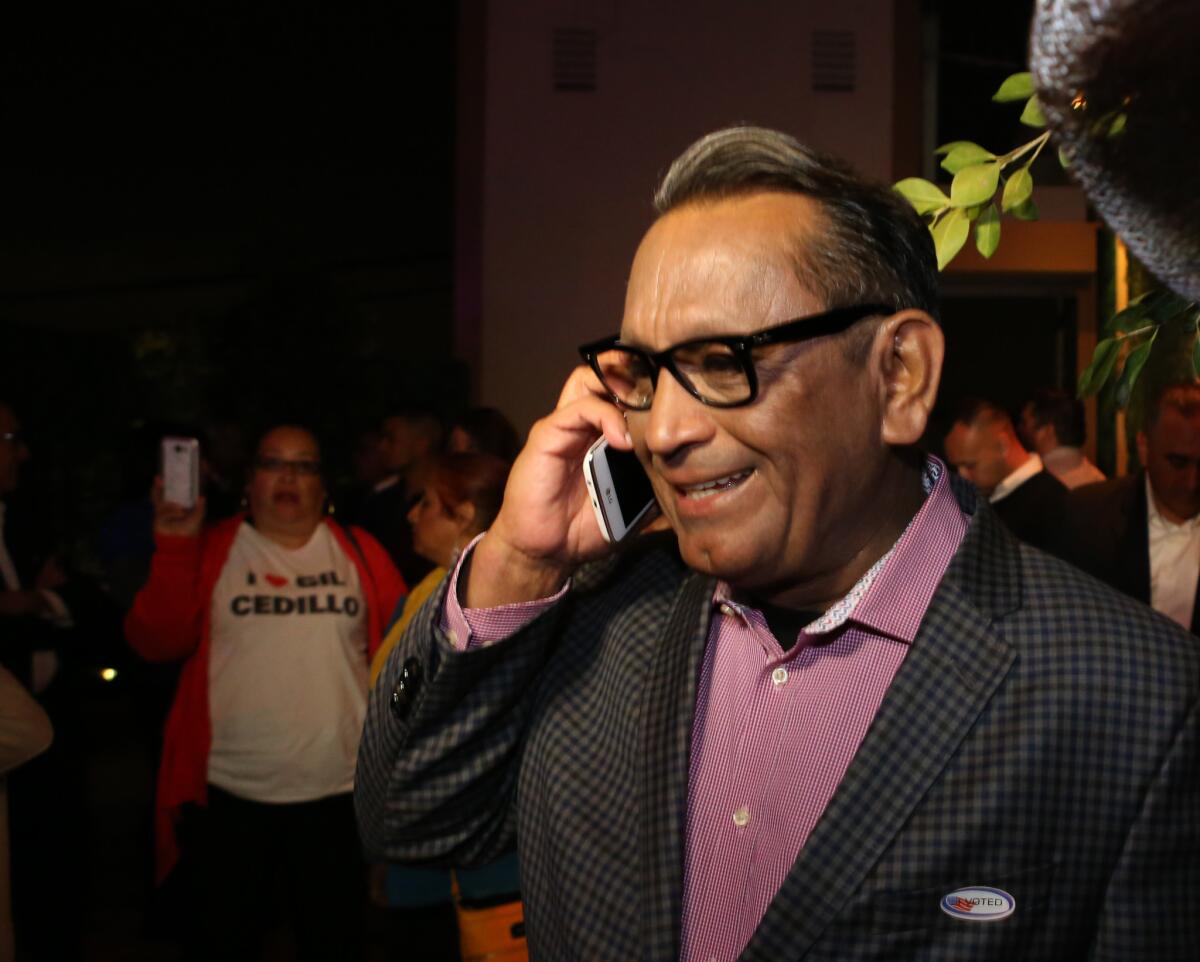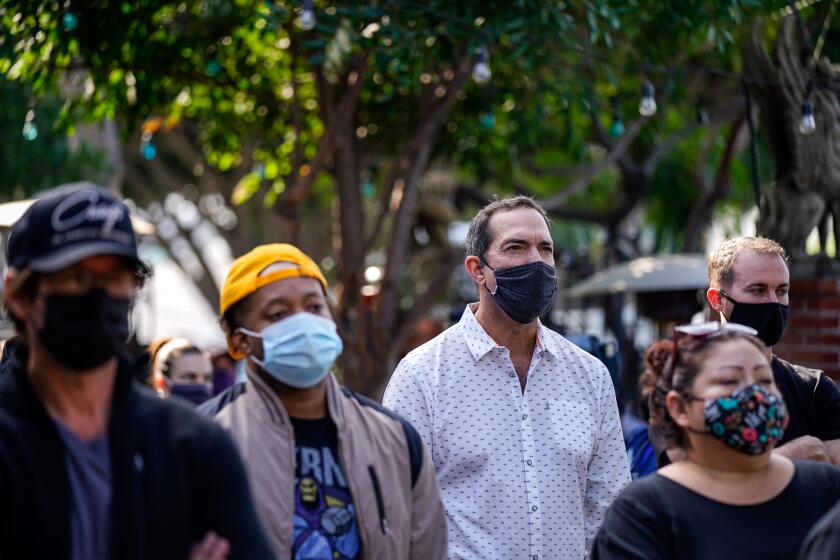Councilman wants L.A. to buy an apartment building using $46 million in COVID-19 aid

- Share via
Los Angeles City Councilman Gil Cedillo is pushing for the city to spend up to $46 million in federal coronavirus relief funds to buy an apartment building in Chinatown, saying the move would spare dozens of tenants from facing steep rent hikes.
In a proposal filed last week at City Hall, Cedillo said he wants to use money from the federal Coronavirus Aid, Relief and Economic Security Act to purchase Hillside Villa, a 124-unit building whose owner is seeking big rent increases. Such a move, Cedillo said, would keep tenants in their homes during a health and housing crisis.
“For us, it’s a good deal. The building’s built. The residents are already moved in. I recognize it’s extraordinary, but these are extraordinary times,” said the councilman, whose district stretches from Highland Park to Westlake.
Still, there’s a potentially big obstacle ahead: The city’s supply of COVID-19 relief money is quickly running out.
Mayor Eric Garcetti and the council have allocated nearly all of the $694 million in CARES Act money received by the city, devoting the funds to such initiatives as homeless housing, rent relief and aid to cover unpaid utility bills, according to a report from the city’s financial analysts. About $31.7 million is still available, said City Administrative Officer Rich Llewellyn, the city’s top budget official.
L.A. is planning new coronavirus restrictions again. Is this the right path? Here are some answers, and some perspective, from epidemiologists and health officials.
Complicating matters further, policy analysts say the city must spend its CARES Act funds by Dec. 30 — a tight timetable for any complex real estate transaction. And the building’s owner, Thomas Botz, says he is not interested in selling, raising the prospect that the city would have to wage a legal fight over any purchase.
Cedillo has been pushing for nearly a year to have the city acquire the property using eminent domain, a process used by government agencies to force property owners to sell so that schools, fire stations and other public facilities can be built.
Kevin Brogan, a Los Angeles-based attorney who specializes in eminent domain, said it would be difficult for the city to take all the legal steps necessary needed to write a check before the Dec. 30 deadline.
To purchase the property using eminent domain, the city would need to make an offer and turn over a summary of the city’s appraisal, Brogan said. City officials also would need to conduct a hearing on whether they need to acquire the property, which would require public notice 15 days in advance, he added.
“That usually takes the city attorney a couple of months to get their ducks in a row, at the fastest,” Brogan said. “So I think this may be a pipe dream on the councilman’s part.”
Cedillo said he plans to move with urgency, getting the money “locked down” and making a formal offer to Botz. “We have to spend it fast,” he said.
In the interim, Hillside Villa residents and tenant activists remain on edge.
Rene Alexzander, who lives in a two-bedroom unit with his husband and four family members, said his rent is scheduled to go from $1,400 a month to $2,500 in February. Alexzander, who worked as a waiter but is now unemployed, said his household cannot absorb such an increase.
“We have nowhere to go,” he said.
Cedillo began pushing in January for the city to use eminent domain to acquire Hillside Villa. At the time, tenant activists who favored that strategy said they expected the building would cost around $15 million.
Housing officials obtained an appraisal in September, with the estimated value coming back at three times that amount — nearly $46 million, Cedillo said. Botz called that estimate “way inaccurate” but declined to give further details.
“We’re really against this,” he said. “We don’t think it’s right on a number of levels.”
Jacob Woocher, a member of the Los Angeles Tenants Union, said the acquisition of Hillside Villa would still be much more cost-effective than building affordable housing from the ground up. Even if COVID-19 relief money proves to be unavailable, the city should be capable of identifying other funds to purchase Hillside Villa, he said.
Cedillo’s proposal is “just getting the conversation started and signaling that we’re serious about putting the money up,” he said.
Hillside Villa was built in 1988 in a partnership with the city, with the city providing around $5.5 million in redevelopment loans and the developers promising to keep rents at affordable prices for 30 years.
Those rent restrictions expired in 2018. Last year, Cedillo attempted to reach a deal with Botz to have the city cancel the remaining debt if the owners agreed to keep rents low for an additional decade. As part of the deal, the city also would have provided $7.3 million to cover the difference, staffers for the councilman said.
Botz was initially interested but later decided against the deal. Cedillo said he believes his latest strategy, which has been referred to the council’s committee dealing with COVID-19 relief, would benefit the seller while also keeping people from being pushed into homelessness.
“It’s a good offer,” the councilman said. “He’s going to make out like a bandit.”
More to Read
Sign up for Essential California
The most important California stories and recommendations in your inbox every morning.
You may occasionally receive promotional content from the Los Angeles Times.












